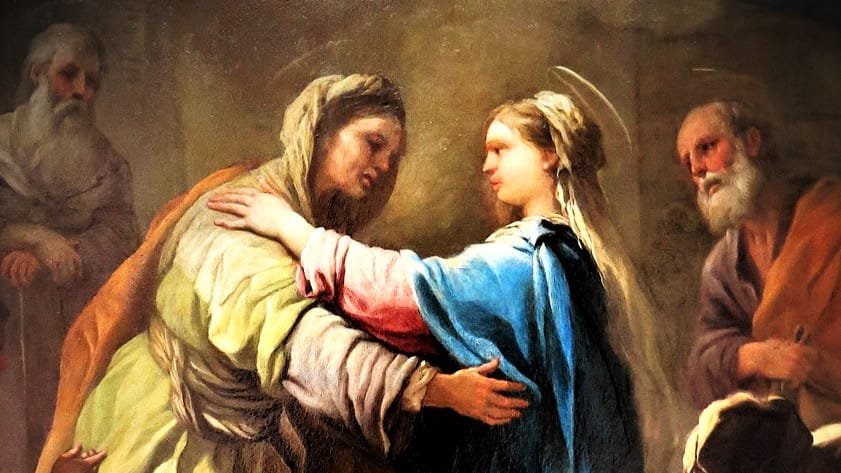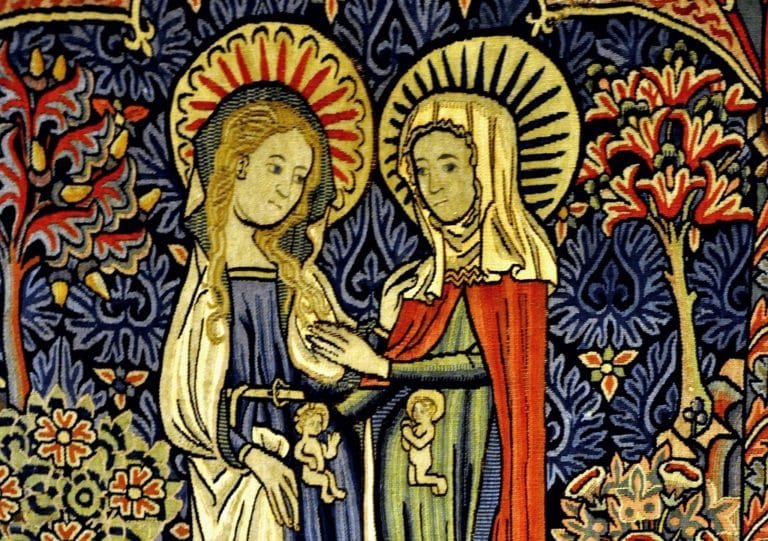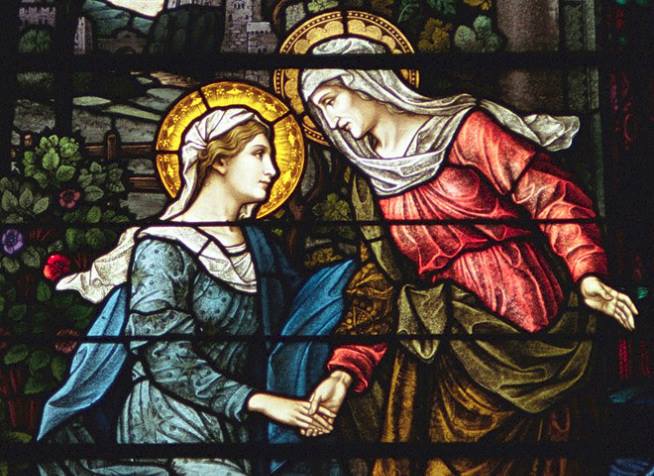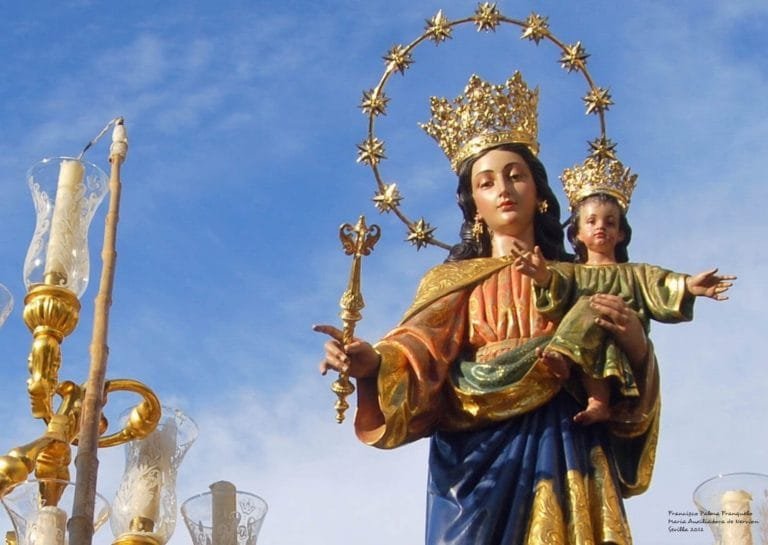May 31 FEAST OF THE VISITATION OF THE BLESSED VIRGIN MARY. Mary proclaims the greatness of the Lord working in her soul (St. Bede).

This feast is celebrated between the solemnity of the Annunciation of the Lord and the birth of St. John the Baptist, in conformity with the gospel accounts. The Visitation is the encounter between Mary and her cousin Elizabeth, the mother of St. John the Baptist. Mary’s “Magnificat” is another testimony of her humility and greatness before God. Her readiness to serve Elizabeth is a good lesson on fraternal charity. The earliest evidence of the existence of the feast is its adoption by the Franciscan Chapter in 1263, upon the advice of St. Bonaventure.
Below you have the 2nd reading of today’s Divine office.
A sermon by St Bede the Venerable
Mary proclaims the greatness of the Lord working in her soul
My soul proclaims the greatness of the Lord, and my spirit rejoices in God my saviour. With these words Mary first acknowledges the special gifts she has been given. Then she recalls God’s universal favours, bestowed unceasingly on the human race.
When a man devotes all his thoughts to the praise and service of the Lord, he proclaims God’s greatness. His observance of God’s commands, moreover, shows that he has God’s power and greatness always at heart. His spirit rejoices in God his saviour and delights in the mere recollection of his creator who gives him hope for eternal salvation.
These words are often for all God’s creations, but especially for the Mother of God. She alone was chosen, and she burned with spiritual love for the son she so joyously conceived. Above all other saints, she alone could truly rejoice in Jesus, her saviour, for she knew that he who was the source of eternal salvation would be born in time in her body, in one person both her own son and her Lord.
For the Almighty has done great things for me, and holy is his name. Mary attributes nothing to her own merits. She refers all her greatness to the gift of the one whose essence is power and whose nature is greatness, for he fills with greatness and strength the small and the weak who believe in him.
She did well to add: and holy is his name, to warn those who heard, and indeed all who would receive his words, that they must believe and call upon his name. For they too could share in everlasting holiness and true salvation according to the words of the prophet: and it will come to pass, that everyone who calls on the name of the Lord will be saved. This is the name she spoke of earlier: and my spirit rejoices in God my saviour.
Therefore it is an excellent and fruitful custom of holy Church that we should sing Mary’s hymn at the time of evening prayer. By meditating upon the incarnation, our devotion is kindled, and by remembering the example of God’s Mother, we are encouraged to lead a life of virtue. Such virtues are best achieved in the evening. We are weary after the day’s work and worn out by our distractions. The time for rest is near, and our minds are ready for contemplation.
Responsory
℟. ‘Blessed are you who have believed, because what has been promised to you by the Lord will be fulfilled.’ And Mary said,* My soul proclaims the greatness of the Lord, alleluia.
℣. Come and hear: I will tell what God has done for my soul.* My soul proclaims the greatness of the Lord, alleluia.
Let us pray. Almighty ever-living God, who while the Blessed Virgin Mary was carrying your Son in her womb, inspired her to visit Elizabeth; grant us, we pray, that, faithful to the promptings of the Spirit, we may magnify your greatness with the Virgin Mary at all times. Through our Lord Jesus Christ, your Son, who lives and reigns with you and the Holy Spirit, one God, for ever and ever.
PHOTO: Joan Mayné (sculptor), Detail of the Main altarpiece (polychromed alabaster) of the Shrine of Our Lady of Torreciudad (Huesca, Spain).


